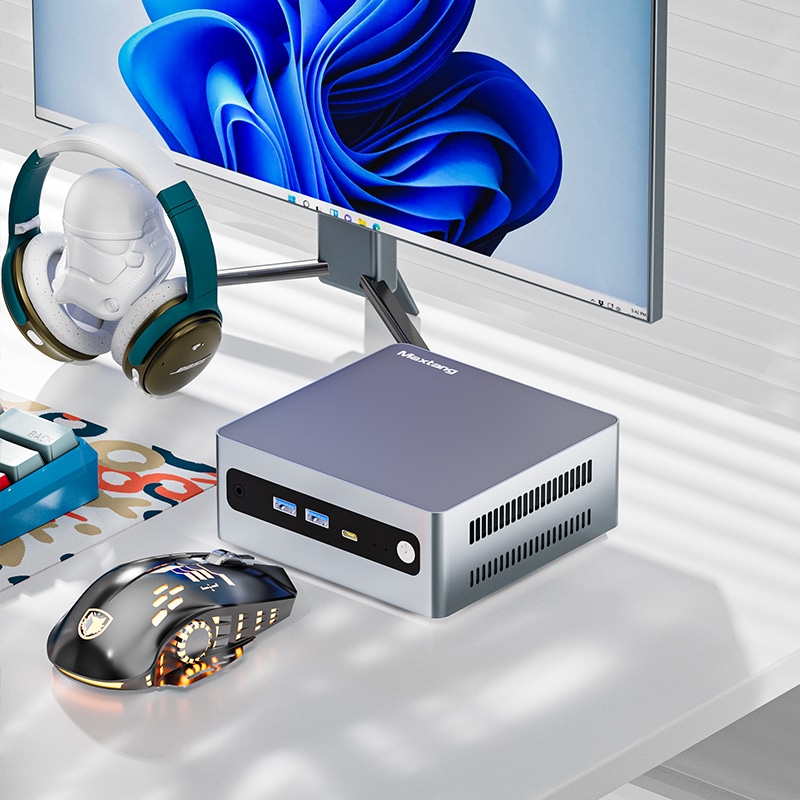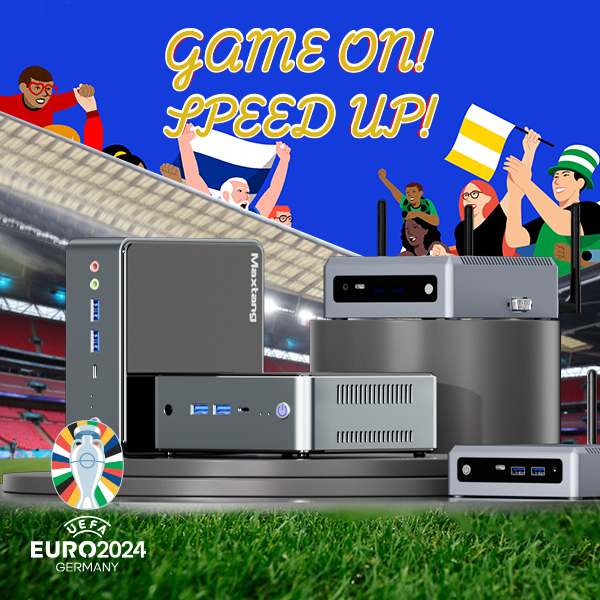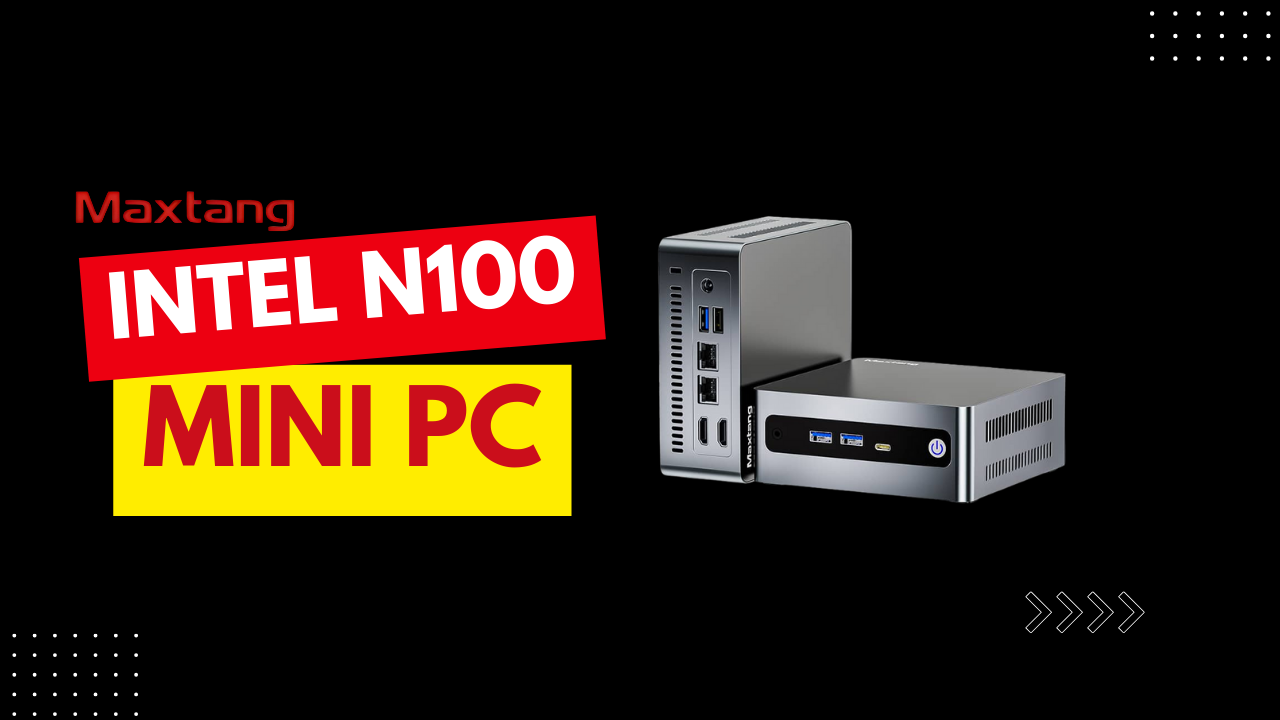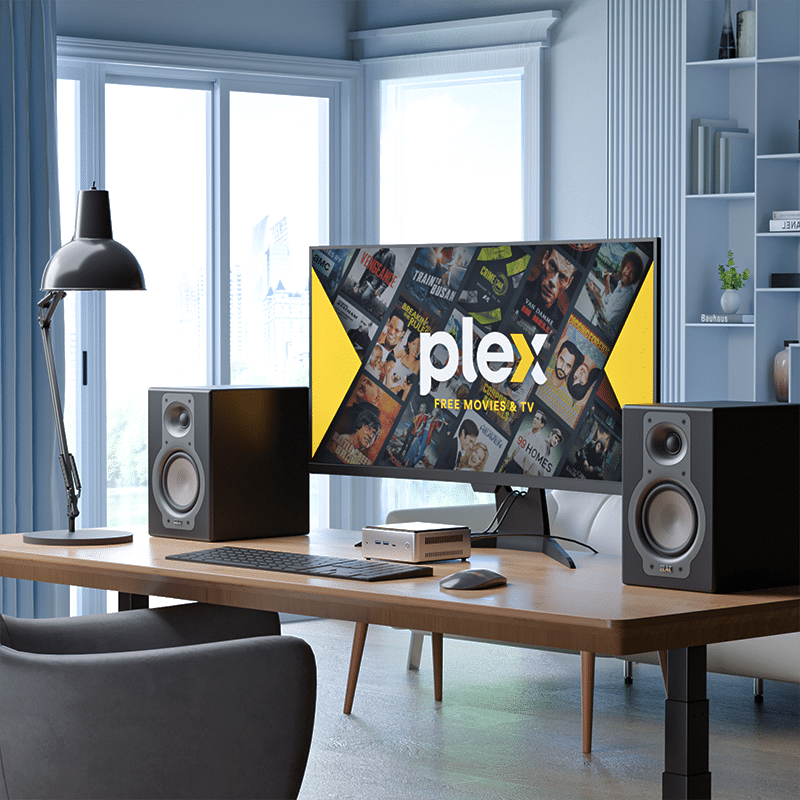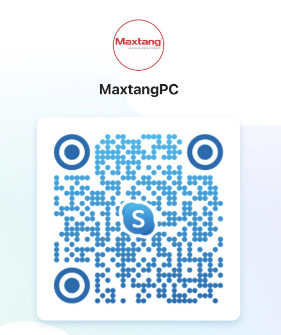What is a Mini PC Windows 11?
In the ever-evolving world of technology, our devices are becoming more compact, powerful, and versatile. small form factor PCs have become one of the standouts in recent innovations. A Mini PC is a small yet mighty computer that packs a punch of powerful computing features despite its size. Devices like mini-pcs have gained more and more popularity due to their space-saving design and impressive performance capabilities. Whether you’re setting up a home office, need a reliable workstation, or want a multimedia hub, choosing the right, Mini PC is essential. This comprehensive guide will walk you through the benefits of a Mini PC, list key factors to consider when purchasing one and introduce you to some popular models of Maxtang Mini PC.
In the ever-evolving world of technology, our devices are becoming more compact, powerful, and versatile. Small form factor PCs have emerged as standout innovations. A Mini PC is a small yet mighty computer that offers powerful computing features despite its size. These devices have gained popularity due to their space-saving design and impressive performance capabilities. Whether you’re setting up a home office, need a reliable workstation, or want a multimedia hub, choosing the right Mini PC is essential. This comprehensive guide will walk you through the benefits of Mini PCs, list key factors to consider when purchasing one, and introduce you to some popular models of Maxtang Mini PCs.

Benefits of Mini Desktop PCs
Compact Size
One of the most significant benefits of mini PCs is their small form factor. Traditional desktop computers can take up a lot of space, which can be problematic in small apartments, dorm rooms, or offices with limited desk space. Mini desktop PCs, on the other hand, are designed to be compact and unobtrusive. They can easily fit on a desk, be mounted behind a monitor, or even be carried in a backpack.
Versatility
Despite their small size, mini desktop computers are incredibly versatile. They can handle a wide range of tasks, from basic office work and web browsing to more demanding activities like multimedia editing and light gaming. Many Mini PCs come with powerful processors, ample RAM, and sufficient storage, ensuring they can meet the needs of most users.
Quiet Operation
Another notable advantage of Mini PCs is their quiet operation. Many models are designed with passive cooling systems, which eliminate the need for noisy fans. This feature makes Mini PCs ideal for environments where noise can be a distraction, such as libraries, study rooms, and quiet offices.
Energy Efficiency
Mini PCs are known for their energy-efficient designs. They consume significantly less power than traditional desktops, leading to lower electricity bills and a smaller carbon footprint. This energy efficiency is not only cost-effective but also environmentally friendly, making Mini PCs an excellent choice for eco-conscious users.
Portability
The lightweight nature of Mini PCs makes them highly portable. This portability is particularly beneficial for professionals who travel frequently and need a reliable computing solution on the go. Instead of lugging around a heavy laptop, a Mini PC can be easily transported and set up anywhere with a monitor and peripherals.
Factors to Consider When Choosing a Mini PC
When selecting a Mini PC, especially as a beginner, it’s important to consider several factors to ensure you choose a device that meets your needs. Here are the key factors to keep in mind:
Processor
The central processing unit (CPU) is the heart of any computer. It determines the device’s overall performance and ability to handle various tasks. For Mini PCs, look for models with powerful processors, such as Intel or AMD CPUs. For basic tasks, an Intel Celeron or Pentium processor might suffice, but for more demanding applications, an Intel Core i5/i7 or AMD Ryzen 5/7 is recommended.
Memory (RAM)
Random Access Memory (RAM) is crucial for multitasking and running demanding applications. For most users, 8GB of RAM is sufficient. However, if you plan to use the Mini PC for more intensive tasks like video editing or gaming, 16GB or more may be necessary. Consider brands like Crucial, Corsair, Kingston, and G.SKILL for reliable performance.
Storage
Solid-state drives (SSDs) are faster and more reliable than traditional hard disk drives (HDDs). For basic uses, 256GB can be sufficient. Aim for 512GB or larger SSD storage for heavy-load applications. Some Mini PCs offer the option to expand storage via additional SSDs or external drives. Brands like Foresee, Kingston, and Seagate are good options.
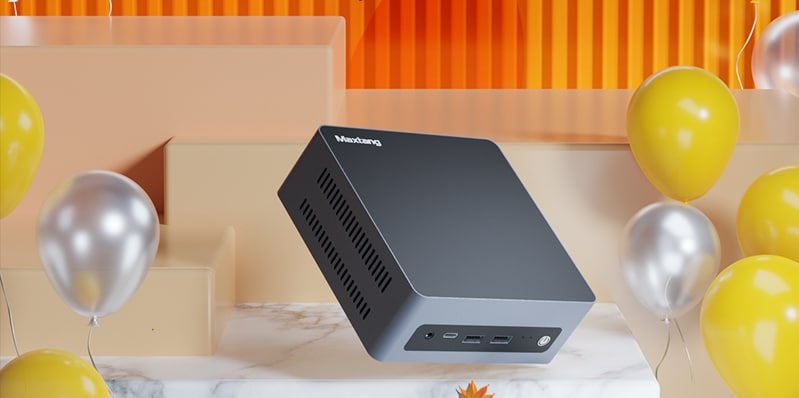
Connectivity
Ensure the Mini PC has sufficient ports and connectivity options to meet your needs. Common ports include USB (both Type-A and Type-C), HDMI, DisplayPort, and Ethernet. Wireless connectivity options like Wi-Fi and Bluetooth are also essential, especially for connecting peripherals like keyboards, mice, and headphones.
Graphics
If you plan to use the Mini PC for gaming or graphic-intensive tasks, the graphics processing unit (GPU) is an important consideration. Some Mini PCs come with integrated graphics, which are adequate for basic tasks. However, for better performance, look for models with dedicated GPUs.
Operating System
Choose a Mini PC that supports your preferred operating system (OS). Most Mini PCs come with Windows pre-installed, but there are also models available with Linux or macOS. Ensure the OS aligns with your needs and preferences.
Expandability
While Mini PCs are compact, some models offer expandability options, such as the ability to upgrade RAM, add more storage, or even replace the CPU. Expandability can extend the device’s lifespan and adaptability to future needs.
Popular Models
Here are a few well-regarded Mini PC models that cater to various needs:
Intel-Based Models
Maxtang MTN-AL50 Intel NUC
Price: Starting from USD 126
The Maxtang MTN-AL50 has an Intel Alder Lake processor, providing excellent performance for everyday computing and demanding applications. Its compact design makes it a versatile choice for home and office use.
- 12th Gen Intel® Alder Lake-P Processors
- Dual Channel SO-DIMM DDR5 Up to 64GB
- Intel® Integrated Graphics, Display via 2x HDMI2.0 + DisplayPort1.4 (USB-C)
- 2xUSB3.2, 2xUSB2.0, 2xLAN (2.5GbE), USB-C, Audio
- SATA3.0, M.2_2280 NVMe for storage options
- 19V/20V DC-in
Maxtang NXN100 Fanless Mini PC
Price: Starting from USD 135
The Maxtang NXN100 features an Intel processor that balances performance and energy efficiency, making it suitable for users who need a reliable and cost-effective Mini PC.
- Intel® Alder Lake N series Processor
- Single Channel SO-DIMM DDR4 up to 32GB
- Integrated Graphics display via 2xHDMI2.0 + DP1.4 (USB-C)
- 2xLAN, 3xUSB3.2, 1xUSB2.0, USB-C, SIM, COM optional
- 1x M.2 2280 Slot for SATA SSD/4G, 1xSATA (FPC) for storage options
- 12V DC-in
AMD Ryzen-Based Models
Maxtang MTN-FP750 Ryzen Mini PC
Price: Starting from USD 400
Powered by an AMD Ryzen processor, the Maxtang MTN-FP750 is designed for users who require high performance for tasks such as content creation, multimedia editing, and gaming.
- AMD Ryzen™ 6000/7000 Series Mobile Processors
- Dual Channel DDR5 for Memory up to 64GB
- AMD Radeon™ Graphics, Displays via 2xHDMI2.0 and DisplayPort1.4 (USB-C)
- 3xUSB3.2, 1xUSB2.0, 1xLAN (2.5GbE), USB-C, Audio
- SATA (FPC), M.2 2280 NVMe SSD for storage options
- 19V/20V DC-in
Use Cases for Mini PCs
Mini PCs are highly versatile and can be used in various scenarios, including personal and business applications:
Personal Use
Home Office
Mini PCs are perfect for setting up a clutter-free home office. Their compact size allows them to fit seamlessly on a desk or be mounted behind a monitor. They can handle tasks such as web browsing, document editing, video conferencing, and more. A Mini PC can be a reliable and efficient centerpiece for a productive home workspace.
Entertainment
Use a Mini PC as a media center to stream movies, play games, or manage your music library. Connect it to your TV or monitor and enjoy a seamless entertainment experience. Many Mini PCs support 4K video output, making them ideal for high-definition streaming.
Learning
Mini PCs are great for students, offering a compact and affordable solution for online learning and homework. They can run educational software, support online classes, and provide a reliable platform for research and assignments.
Business Uses

Workstations
Deploy Mini PCs in office environments to save space and reduce energy costs. They can handle productivity software, manage emails, and support virtual meetings. Their small footprint makes them ideal for hot-desking setups or shared workspaces.
Digital Signage
Mini PCs are ideal for powering digital displays in retail stores, airports, and other public spaces. They can manage and display dynamic content such as advertisements, information boards, and promotional videos. Their compact size allows them to be discreetly mounted behind screens.
Kiosks
Use Mini PCs in kiosks for customer self-service applications, such as information terminals and point-of-sale systems. Their reliable performance ensures smooth operation for interactive displays, ticketing systems, and various other kiosk-based services.
Conclusion
Choosing the right Mini PC involves understanding your specific needs and considering factors such as processor power, memory, storage, and connectivity. Models like the Intel-based Maxtang MTN-AL50 and NXN100, as well as the AMD Ryzen-based MTN-FP750, offer excellent options for various use cases. Whether for personal or business use, Mini PCs provide a compact, efficient, and versatile computing solution. Explore the available models and find the one that best suits your requirements, and experience

